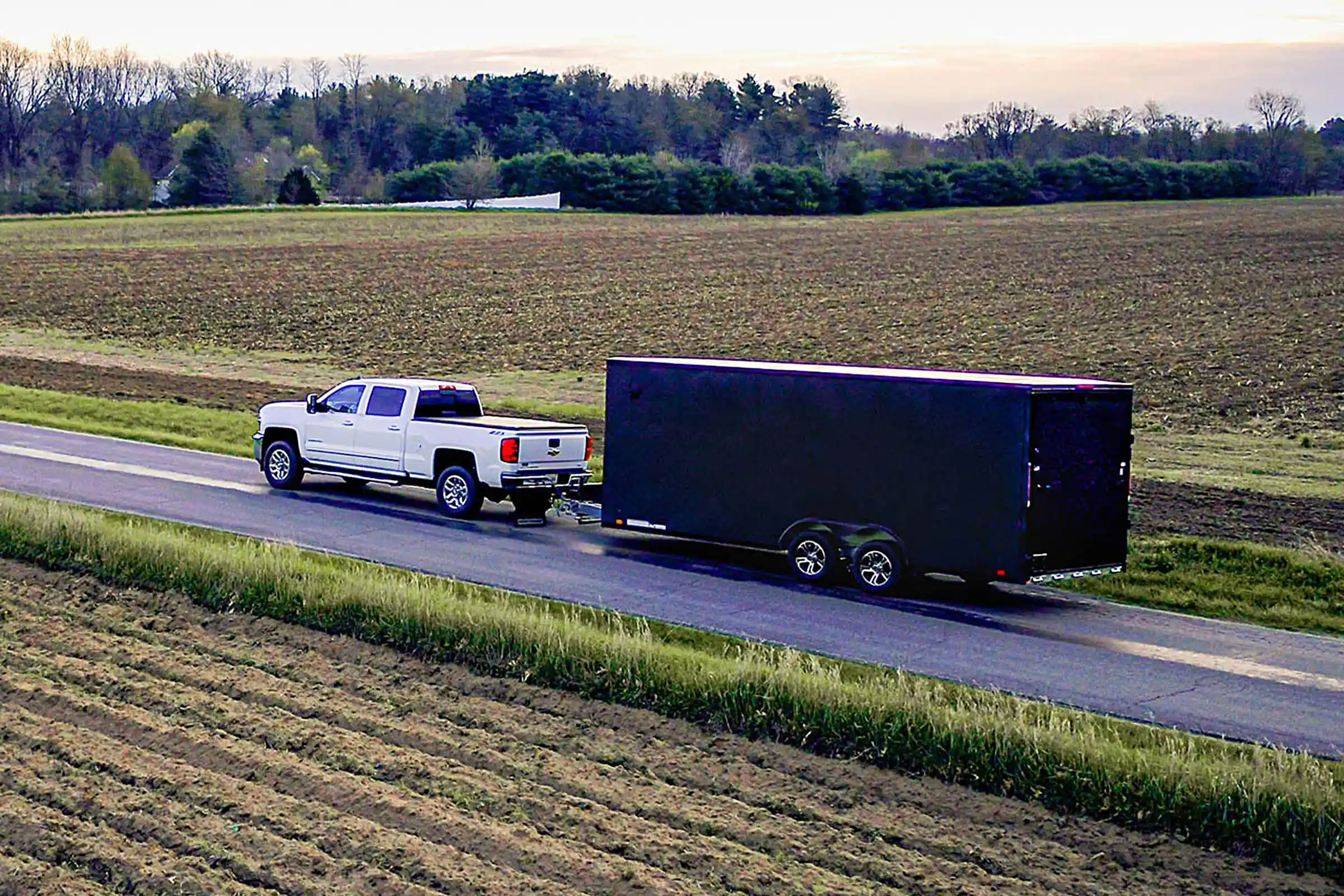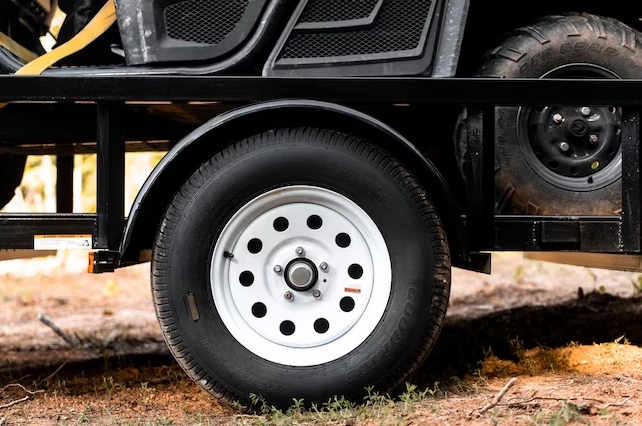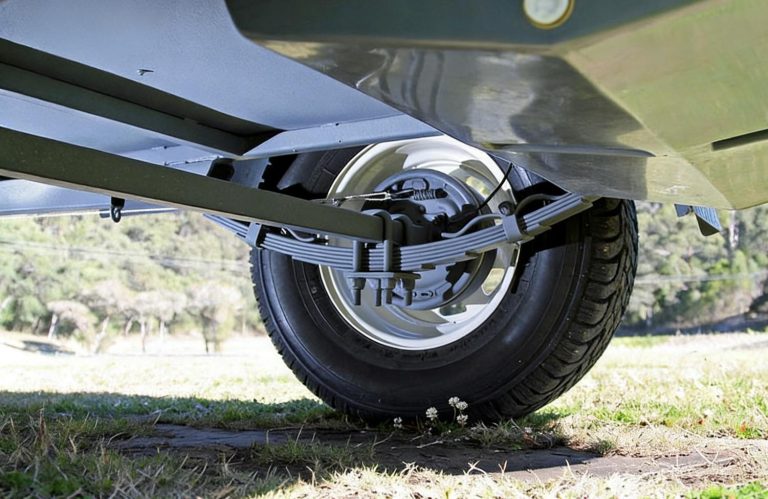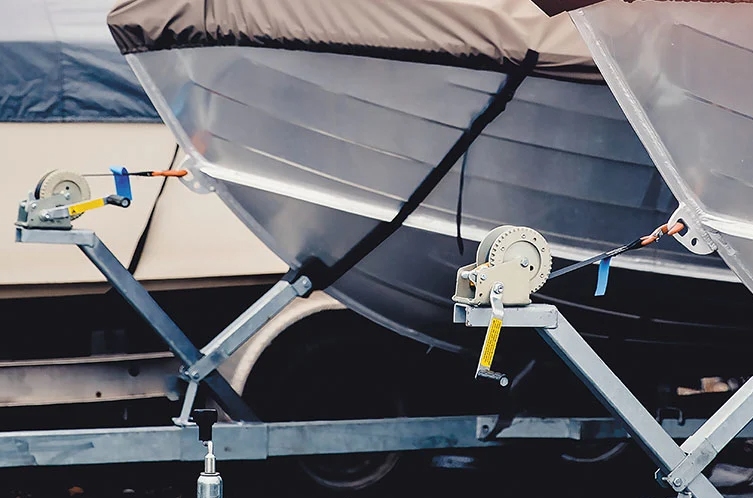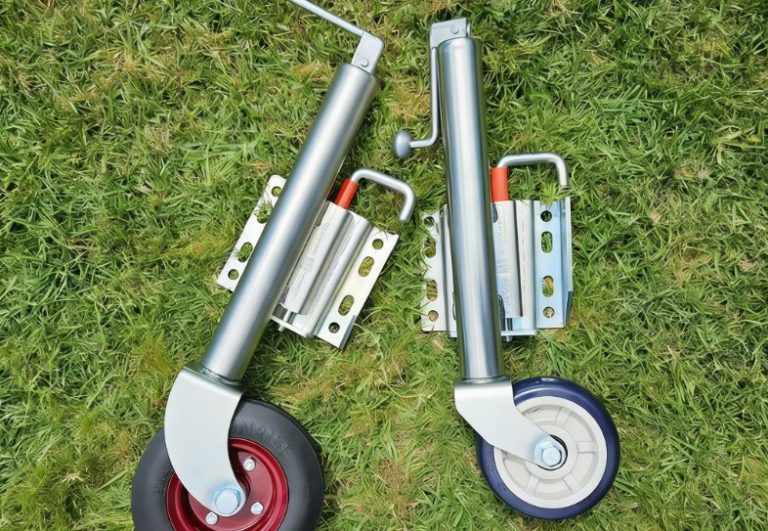Towing a trailer for work or fun needs a strong link between your truck and trailer. The trailer coupler is the main part that keeps things safe and steady. But it can wear out over time. This can make towing risky.
In this guide, we’ll show you how to spot signs of a bad coupler, give you easy steps to how to change a coupler, and suggest good quality trailer couplers from Go Trailer. These will keep your towing setup safe.
Why a Trailer Coupler Is Important
A trailer coupler joins the trailer tongue to the truck’s hitch ball. It lets the trailer turn smoothly while staying hooked. A worn coupler can cause big problems, like the trailer coming loose or wobbling. Knowing the signs of a bad coupler early helps you stay safe. Learning how to change a coupler saves time and money. It also prevents accidents.
Signs of a Bad Trailer Coupler
To find a worn coupler, you need to check it carefully. Here are the top signs of a bad coupler to look for:
1. Rust and Wear
Rust is a big problem for trailer couplers. It happens when the trailer gets wet or sits in bad weather. Light rust might just look bad. But heavy rust can weaken the coupler’s body. This makes it hard to hold the hitch ball tightly. Look for peeling metal or small holes around the ball socket.
2. Hard to Lock or Unlock
If the coupler’s latch feels stiff or gets stuck, that’s a warning. You might need to push hard to lock or unlock it. A worn latch or misaligned parts can stop it from holding tight. This means you may need a trailer coupler replacement.
3. Too Much Wiggle
A good coupler fits snug on the hitch ball. It shouldn’t move much. If you feel wobbling or hear banging sounds while towing, the coupler’s insides might be worn. This shows it’s time to learn how to change a coupler.
4. Bent or Broken Parts
Check the coupler for dents, cracks, or bent pieces. Damage from hitting something or pulling too much weight can make it unsafe. A broken coupler needs to be fixed right away.
5. Latch Won’t Stay Closed
If the latch pops open on its own or needs constant tightening, it’s not working right. This is a serious safety issue. You must do a trailer coupler replacement as soon as possible.
| Sign | What to Look For | What to Do |
| Rust/Wear | Peeling metal or holes | Check and replace if bad |
| Stiff Latch | Hard to lock/unlock | Grease or replace |
| Wiggle | Wobbling or banging | Tighten or replace |
| Damage | Dents or cracks | Replace right away |
| Latch Fails | Pops open | Replace right away |
How to Change a Trailer Coupler: Easy Steps
Replacing a bad coupler is simple if you have the right tools. Follow these steps for a safe trailer coupler replacement:
Step 1: Get Your Tools Ready
Before you start, grab these items:
- New coupler (like Go Trailer’s 2” Ball 5000lbs Straight Tongue Coupleror 2-5/16″ ball ,12500lbs A-frame trailer coupler)
- Wrenches and sockets
- Angle grinder or cutting tool (for welded couplers)
- Drill (if you need new bolt holes)
- Strong bolts (grade 5 or 8 for bolting)
- Safety glasses and gloves
- Jack stands or blocks
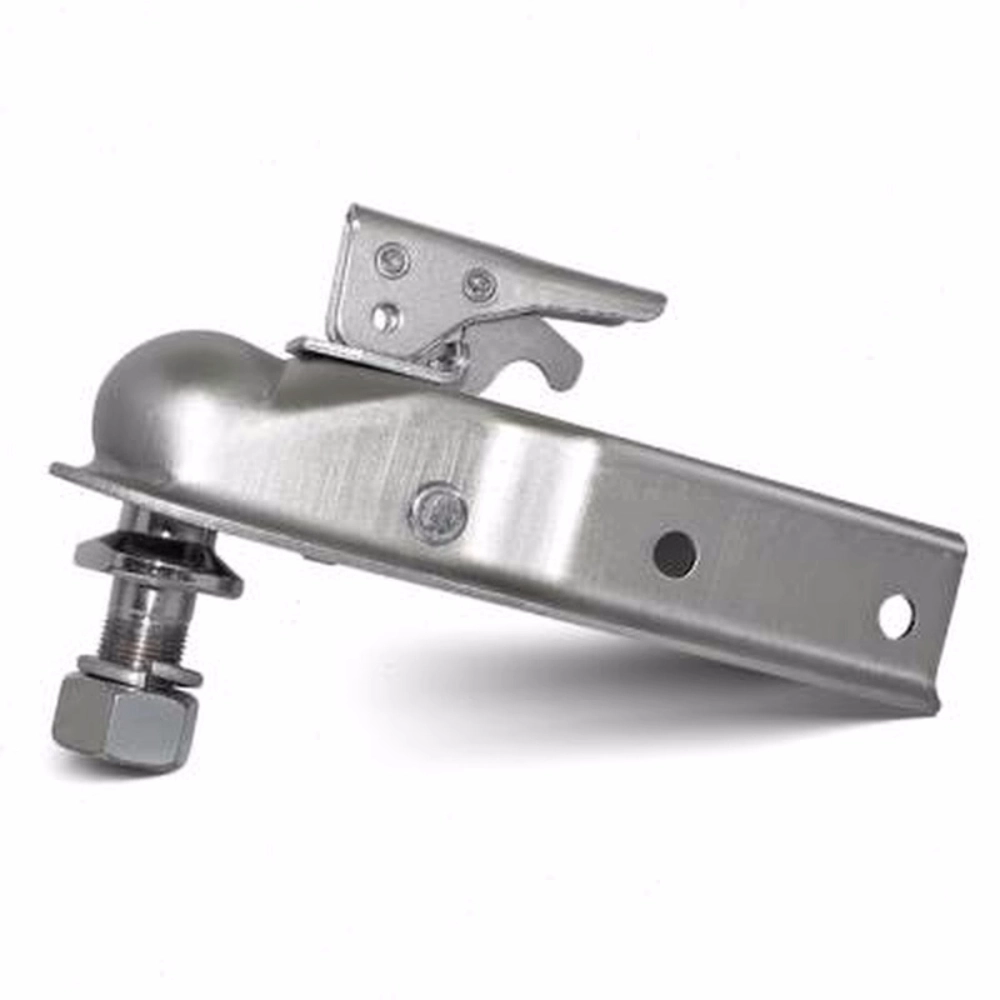
Step 2: Keep the Trailer Still
Park the trailer on flat ground. Unhook it from the truck. Use jack stands or blocks to hold it steady. This stops it from moving while you work.
Step 3: Take Off the Old Coupler
- Bolted Couplers: Use a wrench or socket to unscrew the bolts. Clean the trailer tongue to remove rust or dirt.
- Welded Couplers: Cut the welds with an angle grinder. Be careful not to hurt the trailer tongue. Smooth out any leftover weld bits.
Step 4: Put On the New Coupler
- Line up the new coupler with the trailer tongue. Make sure bolt holes match for bolted couplers. For welded ones, ensure it fits well.
- Bolted Setup: Use grade 5 or 8 bolts to hold the coupler. Tighten them as the maker says.
- Welded Setup: Get a skilled welder to attach it. The welds should be strong and even on the tongue’s outside.
Step 5: Test It Out
Hook the new coupler to the truck’s hitch ball. Lock it tight. Check that it fits well. Use the tongue jack to lift the trailer a bit. Make sure the coupler stays locked. Tow the trailer a short way to see if it’s steady.
Picking a Good Quality Trailer Coupler
Not every coupler is the same. A good quality trailer coupler should be strong, easy to use, and safe. Go Trailer has many high-quality couplers for different towing jobs:
- Straight-Tongue Couplers: Great for small trailers or RVs. Try the 2” Ball 5000lbs Straight Tongue Coupler. It holds up to 5,000 lbs.
- A-Frame Couplers: Good for medium or heavy trailers. They keep things steady and spread weight well.
- Adjustable Couplers: Work for trailers with different heights. The 2-5/16″ ball ,12500lbs A-frame trailer couplercan handle 15,000 lbs.
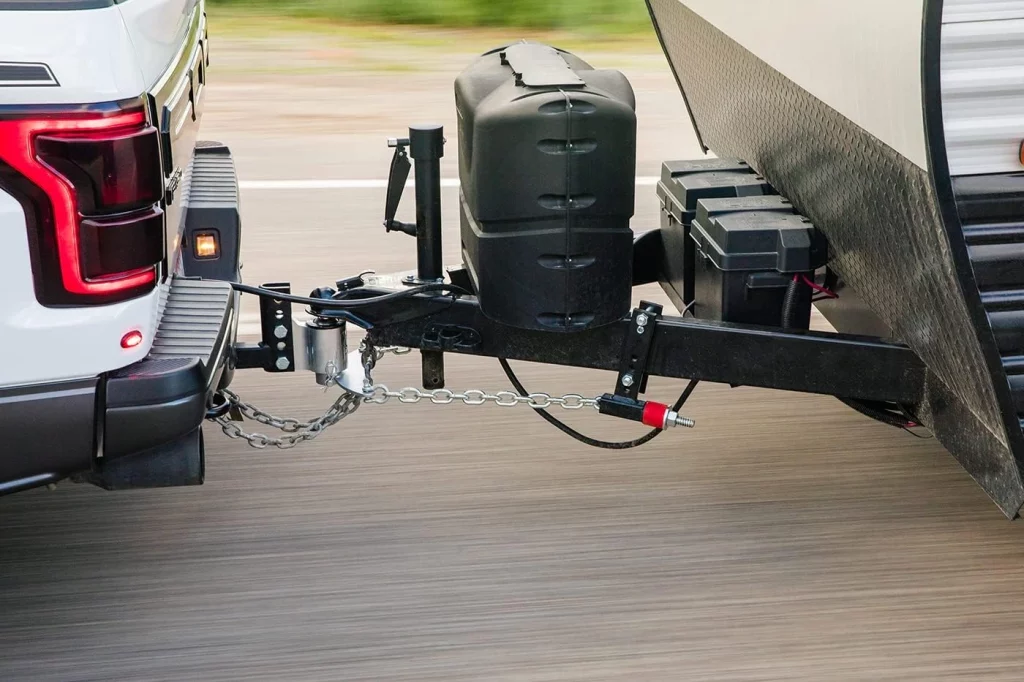
Check for coupler compatibility with your trailer’s tongue and hitch ball size. Look for rust-proof coatings, CE approval, and strong latches. These make the coupler last longer.
About Go Trailer: A Top Trailer Parts Maker
Go Trailer is based in Qingdao, China. They’ve made trailer parts for over 15 years. Their products include couplers, jockey wheels, winches, axles, and springs. They use high-tech tools like CNC machines and laser cutters. Skilled engineers and welders build tough, precise parts. All meet CE standards. Go Trailer’s couplers are coated to fight rust. They work for RVs or heavy hauling. People in the US trust them for safe towing.
FAQs About Trailer Coupler Replacement
Q1: What are the signs of a bad trailer coupler?
A: Look for rust, holes, or peeling metal. A stiff latch that’s hard to lock is another sign. Wobbling, banging noises, dents, or a latch that pops open mean trouble. Check your coupler often to catch problems early.
Q2: Why do I need to replace a trailer coupler?
A: A worn coupler isn’t safe. It might let the trailer come loose or wobble. Replacing it keeps your truck, trailer, and other drivers safe on the road.
Q3: When should I change a trailer coupler?
A: Swap it out as soon as you see rust, a sticky latch, or wobbling. If it’s dented or won’t stay locked, replace it right away to avoid danger.
Q4: How do I pick a good quality trailer coupler?
A: Choose one stronger than your trailer’s weight. Make sure the hitch ball size fits, like 2” or 2-5/16”. Check for rust-proof coatings and strong latches. Ensure coupler compatibility with your trailer’s tongue, whether straight or A-frame.
Q5: Where can I check coupler compatibility?
A: Look at your trailer’s manual or tongue label. Match the coupler’s ball size and weight rating to your hitch and trailer. This ensures a safe, tight fit.
Stay Safe While Towing
A worn trailer coupler is a big risk. You can’t ignore it. Spot the signs of a bad coupler early. Follow our steps to how to change a coupler. This keeps your trailer safe and ready. A good quality trailer coupler from Go Trailer gives you confidence. Their couplers are strong and built to last. Check out their options today. Find the right coupler for your trailer. Tow safely every time.


